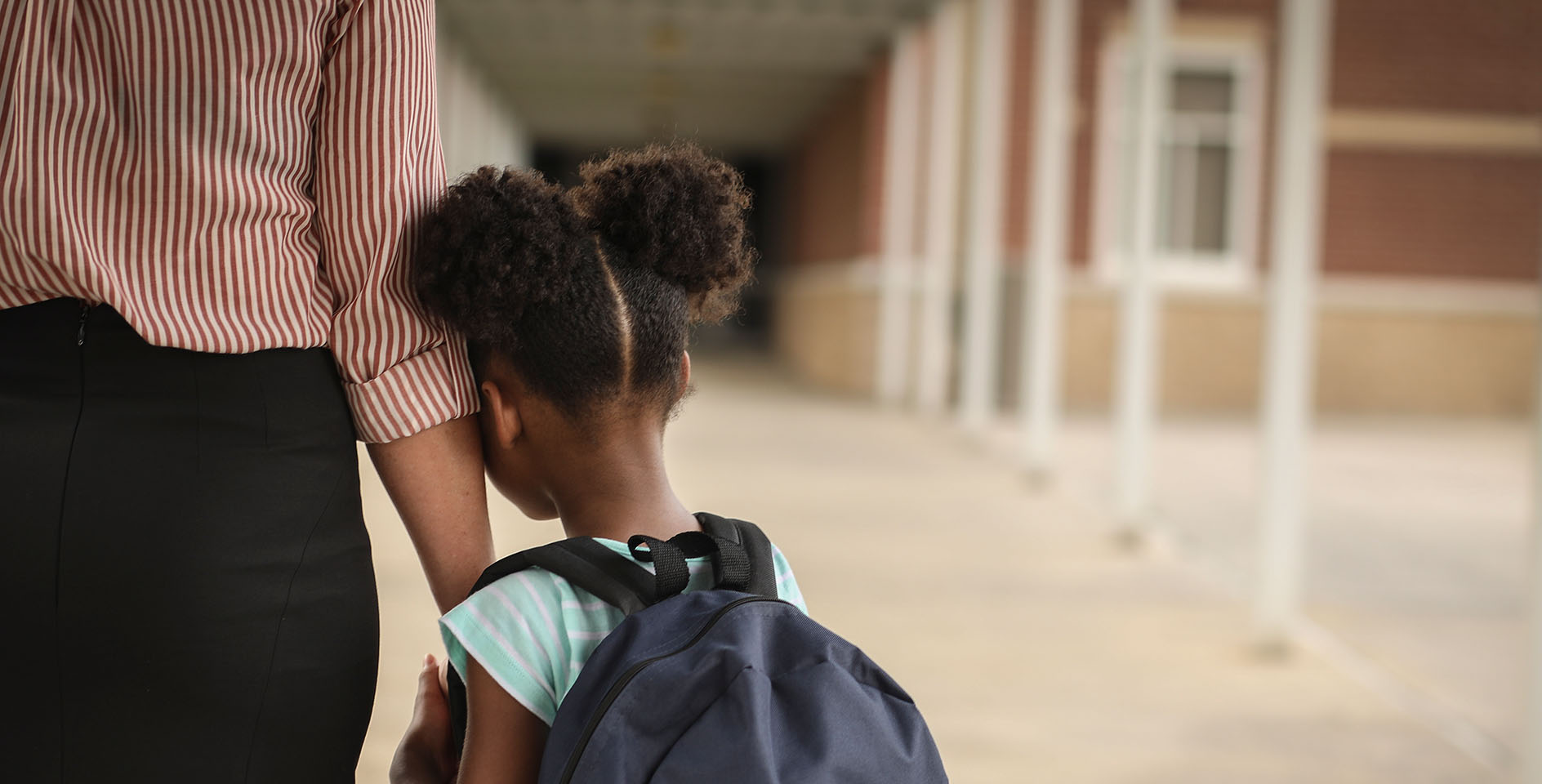A new school year brings an array of feelings for kids returning to the school building. While some kids look with excitement toward a new year, others kids may feel nervous or anxious. There are a variety of reasons that kids may be hesitant to return to school; bullying, school shootings, learning disabilities, negative school experiences, being a new student, or simply fear of missing mom and dad. For these reasons and others, the start of school may weigh heavy on your child. What can parents do to help their children reduce school nerves? Here are a few pointers:
1. Have appropriate expectations.
Parents may find themselves feeling frustrated when their child is anxious. Why? Because anxious kids often think illogically and have meltdowns or negative behaviors. Parents must recognize and prepare themselves for their child’s first day of school. Expect that your child may cry, whine, or not be as happy and easy going when he feels nervous. Expect that it may take a couple days or weeks for your child to feel comfortable in the new school year. Anxious feelings don’t always pass quickly. Understanding your child’s behavior can help reduce a parent’s own frustration.
2. Identify and discuss feelings.
One simple action for parents is to help their children identify and learn about feelings. Help your child identify a feeling by giving them the language for how they feel (i.e., angry, frustrated, mad), and help them describe what they are experiencing (i.e., being nervous feels like my tummy has butterflies). Talk about feelings and provide examples of times that you, as the parent, have felt the same way.
Another great way to help kids identify feelings and problem solve is through reading age-appropriate books. Utilize books that discuss feelings or place characters in situations that provoke similar feelings that your child is experiencing. As you read, ask questions such as, “How do you think that person feels?” “What could the person do in that situation?” “What would you do in that situation?” or “Tell me a time that you have felt that same way.” It’s easier for kids to talk about tough feelings when 1) There are elements of play involved (i.e., reading), 2) When they are talking about the feelings of someone else, and 3) When there is ample time to process their thoughts.
Here are a few book suggestions for preschool and elementary school kids that will help them express how they feel:
- Wemberly Worried by Kevin Henkes
- Zoe’s Hiding Place by David Powlison
- Everyone Feels Anxious at Times by Dr. Daniela Owen
- What Am I Feeling? By Dr. Josh Straub
- What Do I Do With Worry? by Dr. Josh Straub
3. Make a worry list.
Ask your child to identify her worries. Also ask if you can write them down. Listen as your child speaks. Once the list is completed, you and your child can tackle one worry at a time. Stick with open-ended questions, like “Tell me about a time when you were worried about this,” and, “Help me understand what happens right before and after you have that worry.” Lastly, discuss with your child the likelihood of those events occurring, and have your child problem solve what she can do if that situation occurs. These actions help your child feel understood, while also helping your child recognize her ability to handle these tough situations and worries.
4. Prepare for the first day.
Help your child reduce her worries by talking about the first day and by planning ahead. Preparing ahead of time can help reduce nerves or stress associated with the morning routine. Make sure your child goes to bed on time, eats a healthy breakfast, and lays out his school items and outfit the night before. Anxious feelings can also arise when a child doesn’t know what to expect. Eliminate some of those feelings by detailing the first day of school so your child knows what to expect: Start with waking up, the car ride there, the school schedule, pickup times, and what he can look forward to after the school day ends. Providing predictability can reduce anxious feelings.
5. Practice coping skills.
When kids feel anxious or stressed, they can retreat into fight, flight, or freeze mode. Their behavior looks defiant when it is actually a reaction to being scared. Talk openly with your child about their reactions and healthy coping skills. Practice deep breathing, journaling, looking around for a favorite color, reciting Bible verses, or any other helpful coping strategies. Have your child practice the skills in preparation for moments she will need them.
6. Use examples from Scripture.
Scripture is packed with examples of anxiety-provoking situations, fearful individuals, and a faithful God that provides for his people. Utilize biblical examples to point your kids to God’s faithfulness, provision, and grace. Some of my favorite stories include: Peter walking on water, Jesus’ disciples hiding after the crucifixion, Moses not wanting to go to Pharaoh, and Joseph in prison.
7. Memorize Scripture.
There are over 360 verses in Scripture that deal with anxiety or fear. Help your child memorize some of the verses, so he can recall them during times of worry. Remembering Scripture also helps your child fight worried thoughts with truth. I would encourage you to do this yourself so that you can quote the verses together in preparation for the school day. Model this priority in your own life, and share with your children when you have quoted these affirmations to yourself in times of anxiety.
8. Pray.
Utilize the opportunity to teach your child about praying for their worries. Kids’s prayers can sometimes sound rehearsed or repetitive, and that’s OK. But praying in the midst of a struggle can help them talk to God more candidly. Pray with your children, and pray for your children.
While most children experience jitters on the first day of school, other kids experience more than that. They experience anxiety. If your child’s anxiety is negatively impacting his life, don’t hesitate to seek help from a qualified counselor. God has gifted some believers in the body of Christ to counsel others. Asking for help is not a sign of weakness, but a sign of wisdom. Not sure where to start? Often insurance plans cover some mental health benefits, so check with your plan. I would also recommend these sites:
- Association of Certified Biblical Counseling: https://biblicalcounseling.com
- Christian Counseling and Educational Foundation: https://www.ccef.org
As you navigate school worries with your children, remember God himself is available to and present with your children, and he has given them you to support and encourage them. Don’t negate the special role you play in helping your children in the midst of their struggles, and ask the Lord to help you in the journey.










